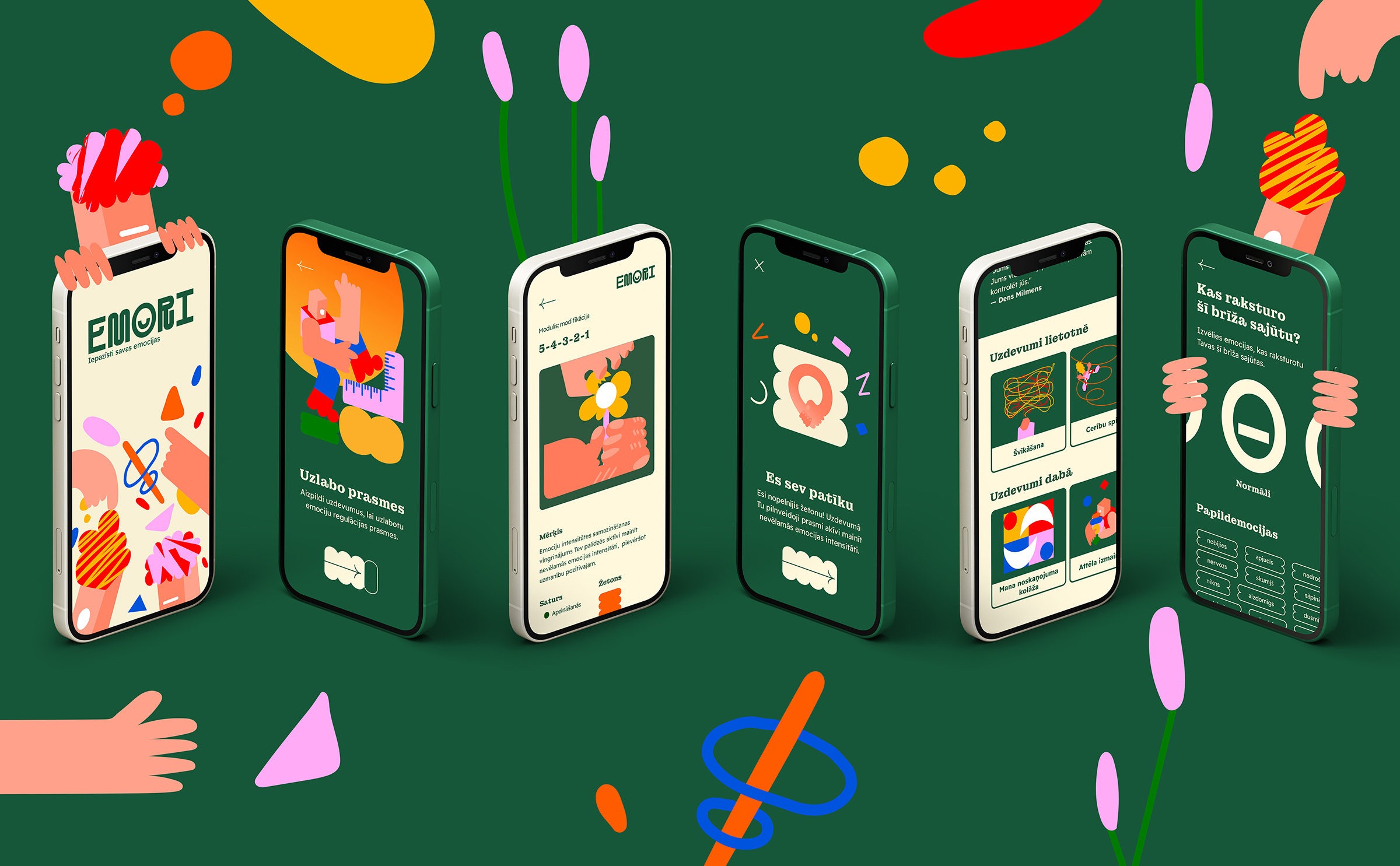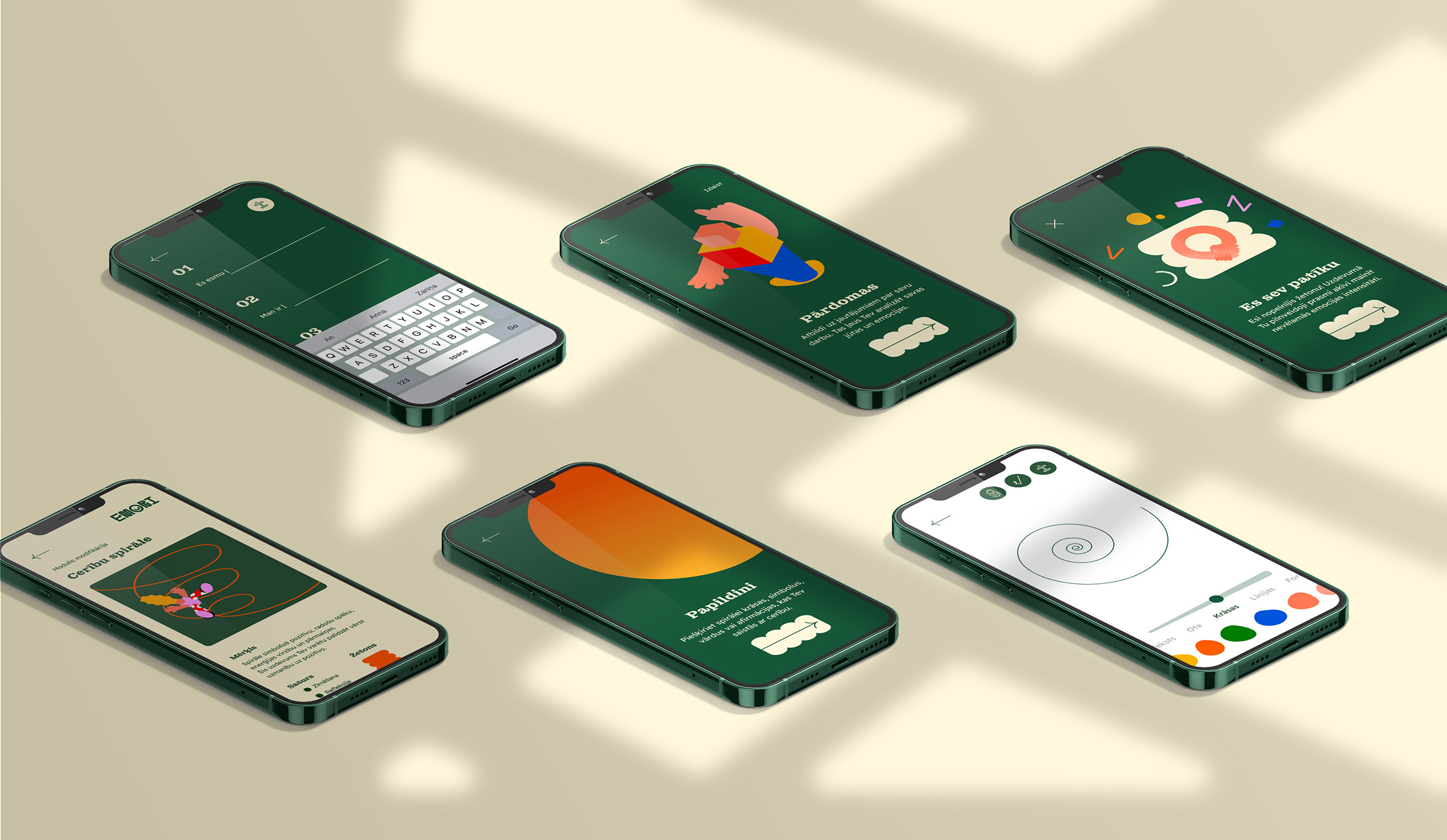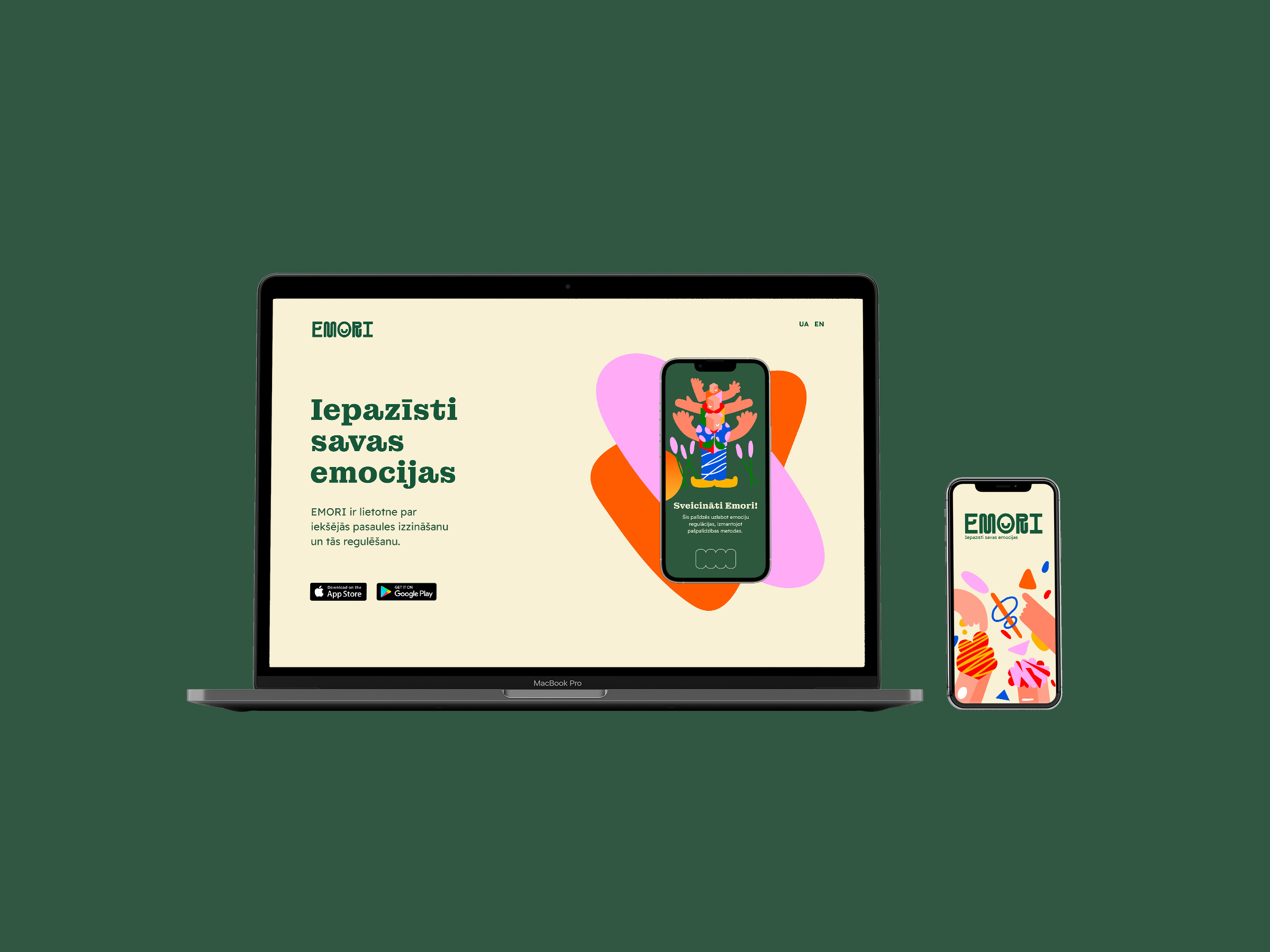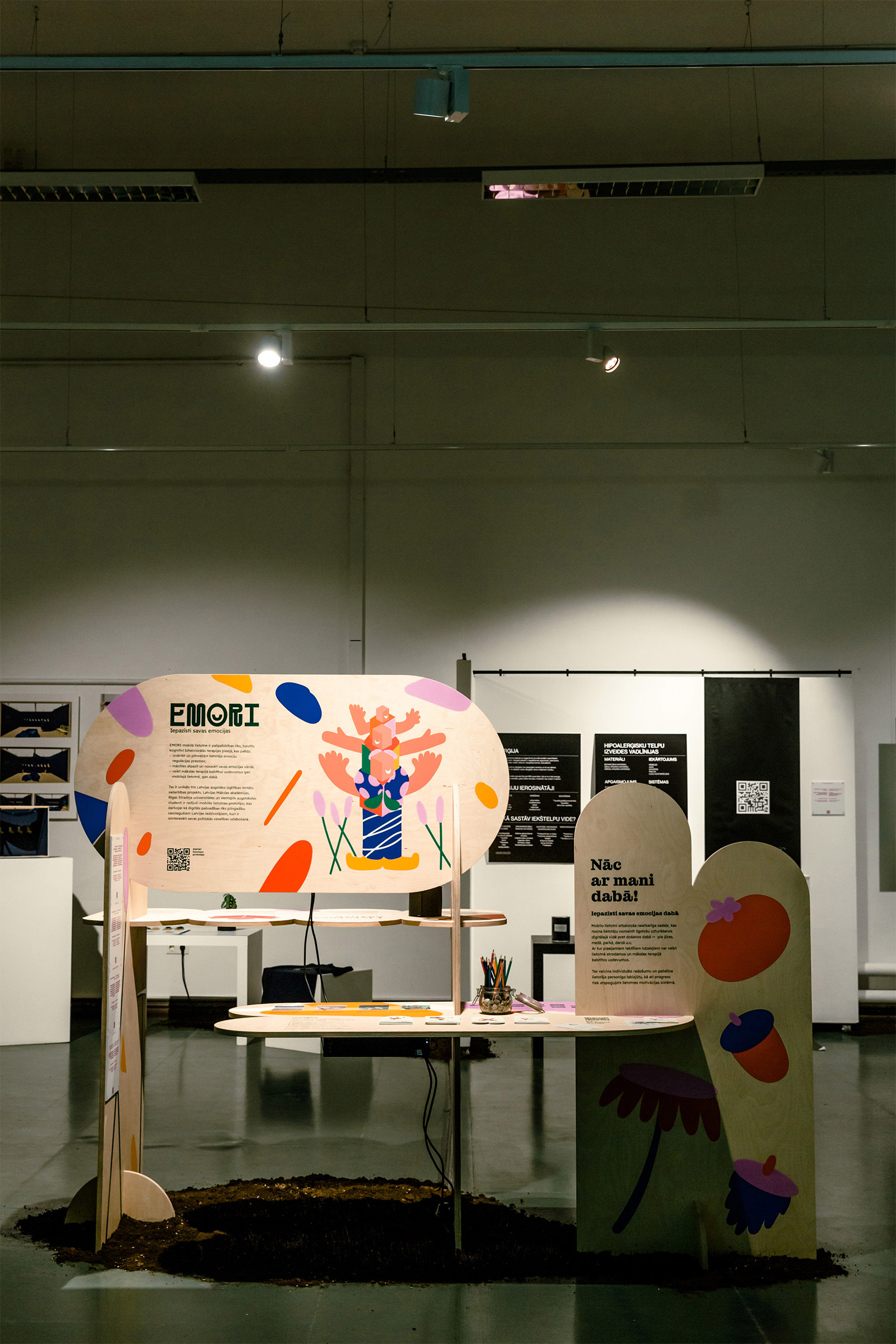Mobile app Emori
Brief description of the project
Emori is a prototype for a mobile self-help app for improving mental health. The app aims to help develop human emotion recognition and regulation skills. At the same time, the app is a research platform that allows data collection and analysis of the emotion regulation skills of Latvian residents. The application is supplemented with illustrations, and it is interactive and intuitive, suitable for a broad audience of potential users. Healthcare professionals un designers are involved in the content creation, and the target audience is included in the development of each iteration of the app. The content of Emori is clinically approved and empirically based.
Originality and creativity of the idea
According to the research of Riga Stradins University, it has been concluded that there is a lack of the ability to be aware of, understand and control unpleasant emotions among the Latvian population.
The app’s content meets the clinical quality threshold and is clinically approved and empirically supported. Content creation involves not only healthcare professionals but also design practitioners and emerging professionals, with the target audience included in the design process at each stage of the design iteration.
Such a cooperation project is the first in Latvia. A design form was created for scientific content based on design studies and methods to develop Emori into an understandable, interactive and friendly app and create accessible psychological support for a broader range of people.
Definition of the problem and the relevance of the applied solutions
Several problems were defined during the cooperation:
No self-help mobile app for developing and improving emotion regulation skills has been developed in Latvian.
There is a need for a friendly self-help tool that translates and adapts medical content in a way that users of different age groups can easily understand, is interactive and can be used independently without a therapist’s help.
Relevance of the solution:
As a result of the cooperation, a prototype of the self-help app Emori was created. Emori is scientifically sound, practical in design, and has several potential future applications.
Co-creation, stakeholder involvement and cooperation during the realisation process
Emori was created within a vertically integrated project (VIP) framework. VIP is a new and innovative addition to the learning process, which provides the acquisition of interdisciplinary competencies, ensuring that students and teaching staff of different levels — experienced and practising teachers — can work in one team.
Three universities, their teaching staff and students cooperated in the VIP team: The team of the Art Academy of Latvia — professors Liene Jākobsone, Barbara Ābele, Matīss Zvaigzne, Markus Rožkalns and functional design students — Džulija Ekuse, Sandra Sugako, Dārta Galiņa, Ričards Znutiņš-Znutāns.
Riga Stradins University team — professors Kristīne Mārtinsone and Inese Paiča and art therapy students — Maruta Linuža and Inga Iejava, Ventspils University team — professor Karīna Šķirmante and programming program student — Jānis Vīksne.
Functionality and technological solutions
The mobile app prototype Emori consists of the following functional blocks:
ERSQ (Emotion Regulation Skills Questionnaire) survey for evaluating emotion regulation skills, identifying feelings and sensations (adapted into Latvian by Inese Paiča and Kristine Mārtinsone)
Mood monitoring module
Art-based tasks for improving emotion management skills
Motivation or reward system
Comparing progress with yourself and others
Not only scientific methods were applied, but also design methods, namely the Three Diamonds Method, Empathy Map, User Path, User Experience, Information Architecture and their analysis, where successful cooperation has resulted in a prototype app.
Aesthetics and other experiential dimensions
By applying emotional design and colour psychology, the visual language of Emori is playful, bold and reliable. The style of the illustrations is minimalistic and colourful. The Emori logo symbol is a person who represents emotional health, growth and knowledge, thus developing a strong brand identification. UI/UX was designed based on scientific and user experience research and their needs. The user interface was based on information architecture research, which made it possible to structure the information in the app and effectively design a successful user interface, personalisation and interactivity. The practical block creates templates for five different tasks, respecting the hierarchy of elements, thus allowing you to add more and more tasks later. A motivation system was designed to motivate users to use the app regularly.
Economic significance, sustainability and circularity
Mobile apps are available to a broader segment of society, including a segment of those who do not have the opportunity to seek help in other ways. Considering that the resources of specialists are limited, a large part of the public does not have the opportunity to visit specialists in person, the cost of the mobile app is not so financially burdensome, and the app is always available.
Emori could also be adapted for improving the emotion regulation skills of children and adolescents, and high-stress workers. The app could be promoted in schools and other professional sectors. With the help of such an app, the working environment in offices could be improved, and employees' mental and physical well-being could be promoted.
Social relevance, inclusion, availability and accessibility
The ability to regulate emotions is an essential component of overall mental health that helps an individual contribute to society. In connection with the recent events worldwide, intense and difficult feelings are often experienced — anxiety, anger, hopelessness and despair.
Various financial, territorial and social conditions prevent a person from seeking or finding help. Apps promote access to mental health care by reducing the stigma and the need for in-person visits.
The population of Latvia lacks the ability to be aware of, understand and control unpleasant emotions — Emori is intended to be used as a research platform.
The content of the app has been developed and clinically approved in Latvian.
The app is designed to be understood by any age group and motivates people to continue their growth and to get to know themselves.




